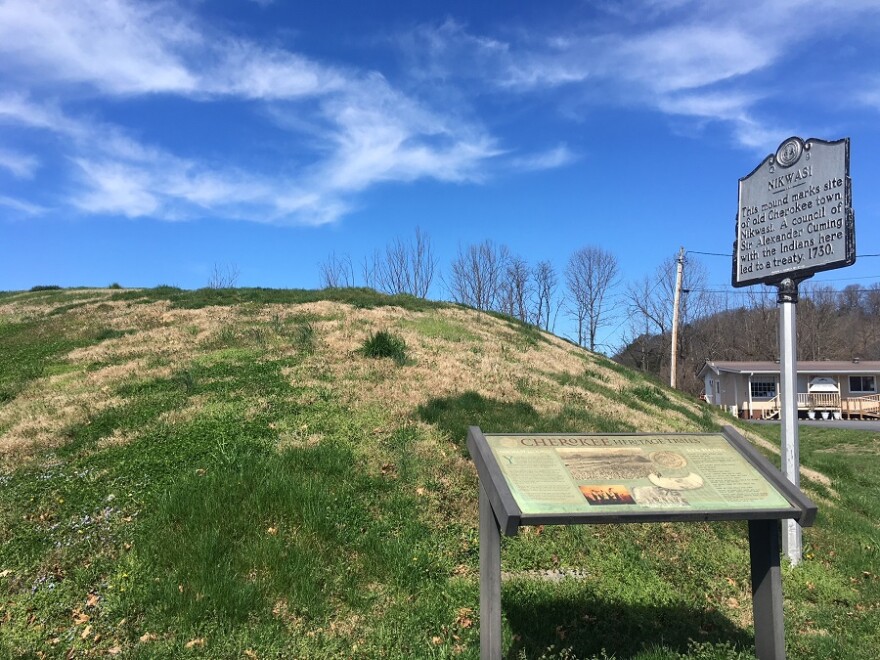After false reports that plaintiffs filed a complaint against the Franklin Town Council last week, a complaint has been officially filed.
Five plaintiffs a complaint and request for an injunction this morning against the members of the Franklin Town Council, according to the Macon County Clerk of Court office. The request asks that the court block the council from transferring the ownership of the Nikwasi Mound to local non-profit The Nikwasi Initiative. The complaint states that “loss of ownership of the Nequassi Mound by the Citizens of Macon County would be incalculable, causing emotional and financial harm to the citizens, because the Nequassi Mound has been the iconic symbol for the early history of the county.”
The town council is scheduled to vote on the transfer of the deed to The Nikwasi Initiative on April 1.
The complaint was filed by five plaintiffs: Gloria Raby Owenby, Betty Cloer Wallace, Mary Ruth Byrd, Edgar Burton “Bud Shope” and Judith Dowdle, against each of the members of the Franklin town council: Barbara McRae, Joe Collins, Daniel Culpepper, Dinah Mashburn, Brandon McMahan and Adam Kimsey as well as mayor Bob Scott.
The complaint requests that the Franklin Town Council honor the Terms and Conditions of the Deed of 1946 to keep the mound on behalf of the Citizens of Macon County for posterity.
No monetary compensation was requested by plaintiffs.
Updated at 10 am on March 28, 2019
Town attorney John Henning says that he doesn’t believe that the 1946 deed gives legal standing to each Macon County citizen in the ownership of the Nikwasi Mound.
“The purpose [of the deed] is to preserve the property as a historic landmark to early Macon County history. That is also required in state law if the property is transferred to nonprofit,” says Henning.
“If the town was trying to sell the property to a convenience store that would be the case but that simply is not what is being contemplated.”
Henning also explains that it is not proper legal procedure to individually name each town council member in the complaint - especially before they have signed away the deed.
“Individually, council members are not liable for anything,” says Henning.






